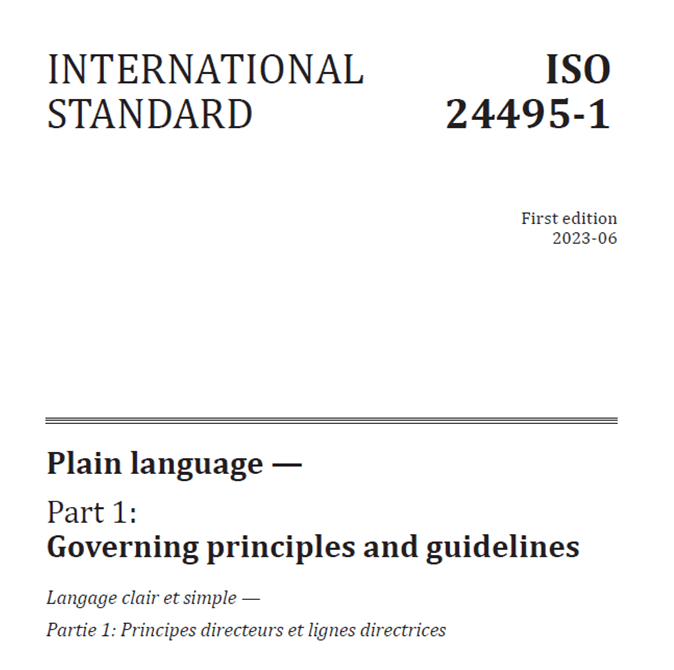Plain language training courses
to transform writing

Think-write’s plain language training courses are for people who write ‘functional documents’ – purposeful documents that impact readers’ thinking, attitudes and behaviour.
Plain language writer training is for people who write:
- correspondence, memos and support materials
- business cases or proposals
- ministerial briefs, policy & procedure
- general advice
- web text
- reviews and assessments
- technical reports.
One day course – Writing well at work
Covers the principles and practice of plain language. Participants will learn to write text that is easy to read, gets to the point fast and achieves purpose.
Writing well at work is suitable for competent writers at all levels. The course is designed to enhance existing writing skills; basic competence in sentence construction and grammar is a pre-requisite.
The course explains the principles and techniques of plain language writing with a focus on the document user (audience). They walk participants through the document creation process and help them apply the ideas to a real work document that participants bring to work on. The content is generic – the ideas can be applied to all documents. Brief commentary about various document genres (briefing notes, reports, letters, policy, etc) is included.
(For NSW Government agencies, a short deep dive into writing briefing notes is available as an option.)
Participants will be able to:
- plan and structure content
- write clearly and concisely
- identify and articulate key messages
- provide focused content
- improve clarity and readability.
Half day course – Plain language fundamentals
Plain language fundamentals covers the same material as Writing well at work, but in a condensed form. It is suitable for competent writers needing a refresher in plain language principles.
Plain language fundamentals can also be taken by senior managers who need to understand what their staff have been told in Writing well at work. Understanding the benefits and objectives of plain language is important. Introducing plain language to an organisation can be a form of culture change – all parts of the organisation need to be aligned.
Proven techniques for clear and effective writing
Five basic plain language principles underpin our training courses. And we provide an easy to follow scaffold to guide writers through the document creation process – from first idea through to user testing.
Think-write’s plain language courses draw on the deep knowledge acquired over 30 years of writing and editing government and private sector documents. See Think-write’s experience.
Think-write Consulting is a supplier on the Australian Government’s Plain English Training Panel.
Think-write’s plain language training courses cover both the thinking required to write well in plain language, and plain English techniques. You’ll craft documents that are easy to read, get to the point fast and achieve purpose.
The material presented is consistent with ISO 24495-1:2023 Plain language – Part 1: Governing principles and guidelines, but not constrained by it.

The need for plain language writer training
Our plain language training helps participants to develop skills that will help them write a range of documents: documents that are more effective and more efficient.
- More effective – documents more easily read, understood and more likely acted on by the audience.
- More efficient – documents written and read in less time. Less back and forth between authors and reviewers.
Thinking well and writing well are closely connected. The ability to organise ideas effectively and communicate them clearly, concisely and persuasively has significant career benefits for individuals. It also enhances the effectiveness and reputation of your organisation.
Participants will:
- Realise the strength of a user centred mindset.
- Recognise the relationship between writing well and thinking well.
- Appreciate the importance of defining purpose, audience and message before writing.
- Know how to generate and structure content.
- Grasp the power of ‘point first’ structure.
- Be able to use five simple plain language techniques to craft messages.
- Understand how to refine, review and test documents.
What previous participants say about Writing well at work.
- The best course on writing I have ever done. Easy to follow and just plain common sense.
- The point that no matter how long and hard you work on a report, if no one reads it then it is a waste of time. Really got through to me.
- It has made me consider my reader more and my writing is not so “long-winded” now.
- Framing my thoughts in terms of why I’m writing, to whom and what is the key message I want to convey, makes me spend less time writing.
- Just the clarity of the presentation and the push to ensure we are thinking about what the customer wants to know (the purpose of the report), as well as what we want the customer to do after reading the report.
- The practicality of the information – it was easy to see how I could apply lessons to my own writing. I particularly liked the exercise on using simpler words – that has really stuck with me.
- Very good course that I’ve tried to put into practice right away. I’m finding it easiest to implement talking headings and focusing on overall readability. The actual sentence structure is a lot harder to change my habits for.
- This type of training is a good opportunity to stop the hectic day to day activities and think about process and outcomes.
- I think we should do the course every few years. Much of what you discussed we all know but tend to forget.